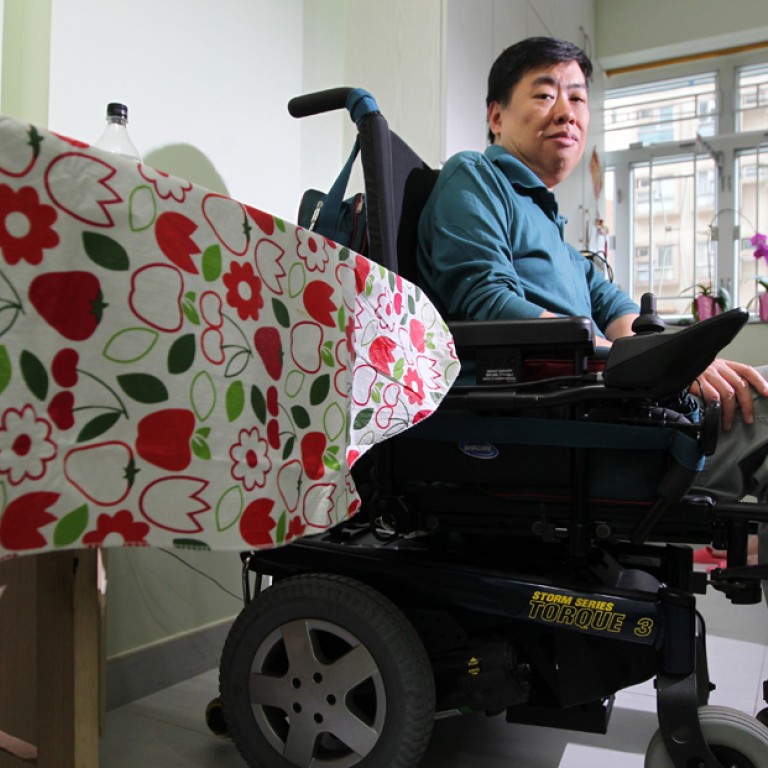
Occupy Central takes democracy message to Hong Kong's disabled community
The Occupy Central movement for full democracy is set to embrace a new group of participants: the disabled community, many of whom are lining up activities to make their voices heard after decades of being marginalised.

And on October 5, Occupy Central's organisers plan to stage a seminar for disabled people at which co-founder Dr Chan Kin-man will explain the movement to them.
"Due to limits of cognition, some of us do not understand what universal suffrage means," said Silence chairman William Tang Siu-chung, 32, in sign language.
Next month, Occupy Central will stage its second deliberation day to forge a consensus on the upcoming electoral reform of the chief executive and Legislative Council ballots.
Labour Party lawmaker Dr Fernando Cheung Chiu-hung, who liaises with the 440,000-strong disabled community, said that other than meetings and seminars, he was exploring the possibility of organising a deliberation day for them.
What the democracy campaign boiled down to was an opportunity for empowerment, Tang said.
For the hearing impaired, that means more signs in MTR facilities. For patients of neuromuscular disease, it may simply mean help in living a life of dignity.
"We have been channelling our demands to the government via all means, but all our attempts have gone unheeded," Tang said.
The city has more than 92,000 hearing-impaired residents, 2009 government statistics show.
They would gain hope if they had the right to choose their government, Tang said.
"If universal suffrage is in place, the hearing impaired can also enjoy civil rights, such as subtitles on television and more signage in the MTR. These are basic rights."
Raymond Lau Wai-ming, 51, who was born with spinal muscular atrophy, said: "We want less suffering in our struggle between life and death."
Lau's disorder leads to increasing loss of muscular control. He estimates that more than 2,000 Hongkongers suffer from neuromuscular disease. Since it is irreversible and terminal, all they want is a better life in their limited days, he said. And for Lau, that includes universal suffrage.
"I don't think I can wait for another eight to 10 years," he said.
